|
Tuesday, Apr. 08, 2003 | 3:09 PM Theater of Despair
I finished all my work super early today and have since been spending time doing nothing but Cabaret stuff mainly researching the Nazis rise to power, and most specifically the years 1929-1933. Scary scary stuff. During the course of my research, I came across a story (from this website) which absolutely broke my heart�even more so than holocaust stories often do. In the autumn of 1932, Max Ehrlich is at the high point of his career: He is one of Germany�s most beloved comics, masters of ceremony and cabaret stars. His creative accomplishments include leading roles in Max Reinhardt productions, the Haller-Revuen, and other important cabaret as well as stage groups. Also to his credit: forty-two movies, ten of which he directed personally; eight records, including chansons, operetta, comedy sketches and character imitations; not forgetting his best selling book "From Adelbert to Zilzer," a touchingly humorous collection of stories and anecdotes about sixty-two of his best known show business friends and colleagues. Then, in 1933, the National Socialists bring this artistic �lan to a grinding halt. Max Ehrlich - like his other Jewish colleagues - may no longer work in Germany. He leaves for Vienna to appear with the Nelson Revue. However, there too, Austrian anti-Semites interrupt the show with cries of "Jews get out of Vienna". So the troupe leaves for Holland, stopping en route to appear in Switzerland. In 1935, homesick for his native land, Max Ehrlich returns to Nazi Germany. Besides, Jewish entertainers once again may perform there, even if only within the framework of the J�dische Kulturbund (Jewish Cultural Union) and exclusively in front of Jewish audiences. Max Ehrlich is named director of the Bund�s light theater department. But, following the 1938 pogrom, he decides to leave Germany definitively. Both of his farewell performances immediately sell out and a third presentation is added. Thus, on April 2nd 1939, before a full house of fans, crying out their affection and encouragement, Max Ehrlich makes his final appearance in Germany. He returns to Holland and joins Willy Rosen and his Theater der Prominenten (Theater of Celebrities) where, even during the Nazi occupation, Max Ehrlich remains Then in 1943 - like so many of his colleagues - Max Ehrlich is imprisoned in Westerbork concentration camp. Here, he becomes director of the "Camp Westerbork Theater Group," a cabaret troupe that, during its eighteen month existence, stages six major theater productions within the concentration camp�s confines. All the actors are prominent artists from Berlin and Vienna, such as Willy Rosen, Erich Ziegler, Camila Spira, and Kurt Geron; or well-known Dutch performers, like Esther Philipse, Jetty Cantor and Jonny & Jones. At its high point, the Group counts fifty-one members, including a full team of musicians, dancers, choreographers, artists, tailors, make-up, lighting and other technicians, as well as stage hands. Contemporary observers unconditionally exclaim that the "best cabaret in Europe" now is in camp Westerbork. Most of the shows combine elements of revue and cabaret - songs and sketches - but, on one occasion, the program includes a revue-operetta, "Ludmilla, or Corpses Everywhere". A production whose theme sadly is a presentiment of the actors� and other prisoners� fate. While some scenes are implicitly critical, of course, the Theater Group - at no time - produces openly political cabaret or directly attacks the Nazi regime. To do so would violate the most fundamental condition for the troupe�s continued existence. Besides, life in Westerbork is dominated by the persistent threat of deportation on the next transport to an unknown but deeply feared fate in the East. So, standing, helpless and unaided before the fascists� executioners and their lackeys, the Theater Group, of necessity, limits itself to entertaining its audiences and to momentarily distracting them from the surrounding horrors. But in so doing, it also gives their captive audiences renewed hope and the courage to face an otherwise unbearable existence. During the summer of 1944, increasing numbers of transports carry Westerbork�s prisoners to the extermination camps in the East. Of 107�000 camp inmates, less than 5�000 ultimately survive. In the last transport to leave Westerbork, on September 4th 1944, Max Ehrlich is number 151 on the list of victims. Eyewitnesses recount that, after reaching Auschwitz extermination camp, he still suffers the misfortune to be recognized by a Hauptsturmf�hrer. As a result, Max Ehrlich is subjected to an additional martyrdom: brought before a group of SS brutes holding their loaded guns aimed at him, he is ordered to tell jokes. Shortly thereafter, in late 1944, his Nazi captors murder him in the Auschwitz gas chambers. At last, on April 12th 1945, British troops liberate Westerbork. By then, only 876 prisoners are left: 464 men, 309 women and 229 children, of which only two Theater Group members. I tried to find more information on the Westerbork Drama group, but there don�t seem to be any books about the subject. It seems like the perfect topic for a wonderful theatre piece. Alright�back to research.
time capsule from heaven - Sunday, Aug. 21, 2011
31 - Saturday, Mar. 15, 2008
Dead/Alive - Monday, Mar. 10, 2008
Do not trustTIAA-CREF-- they are fucking their customers - Friday, Jul. 28, 2006
Shilling - Tuesday, Jul. 11, 2006
Before After
|
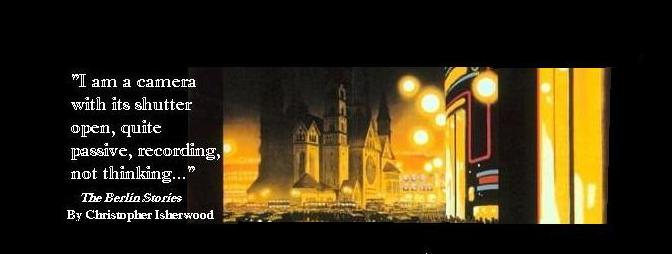

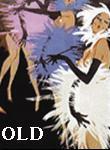
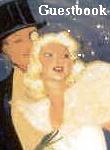




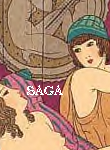

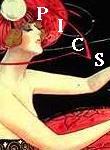
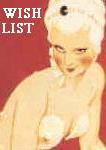
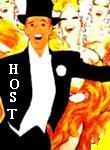
![]()














![]()
